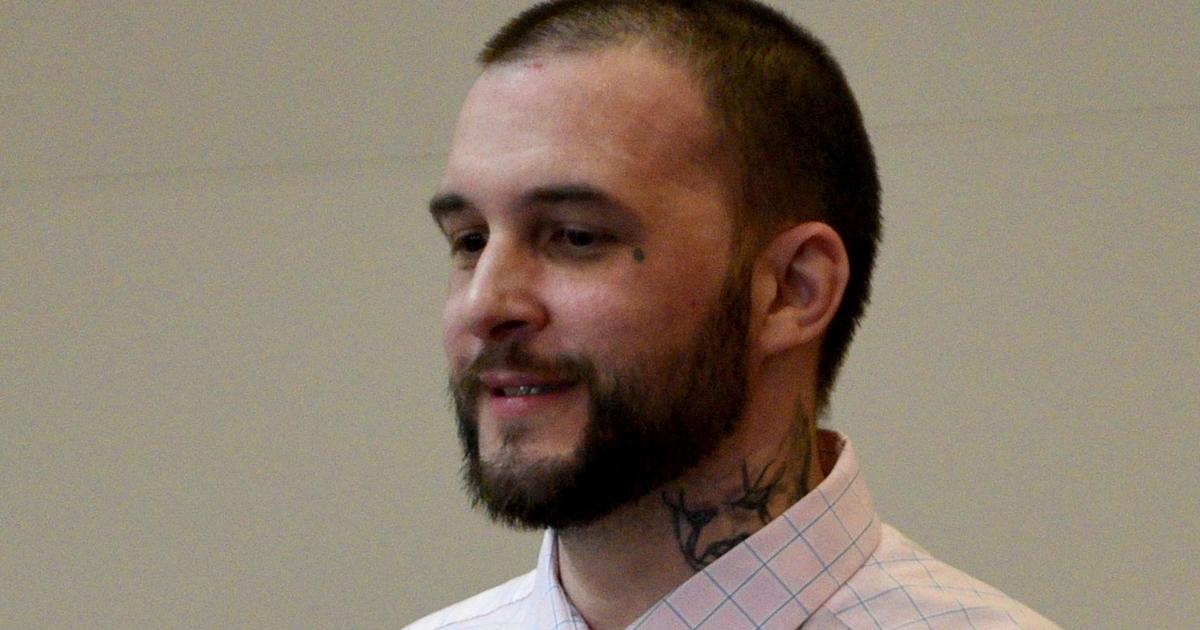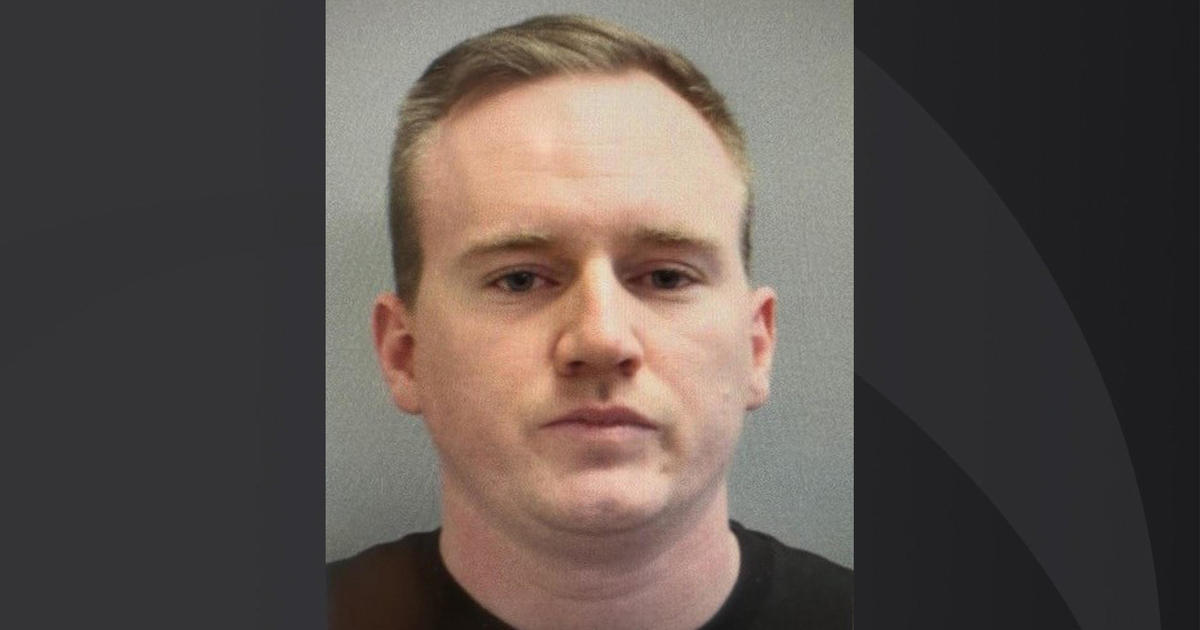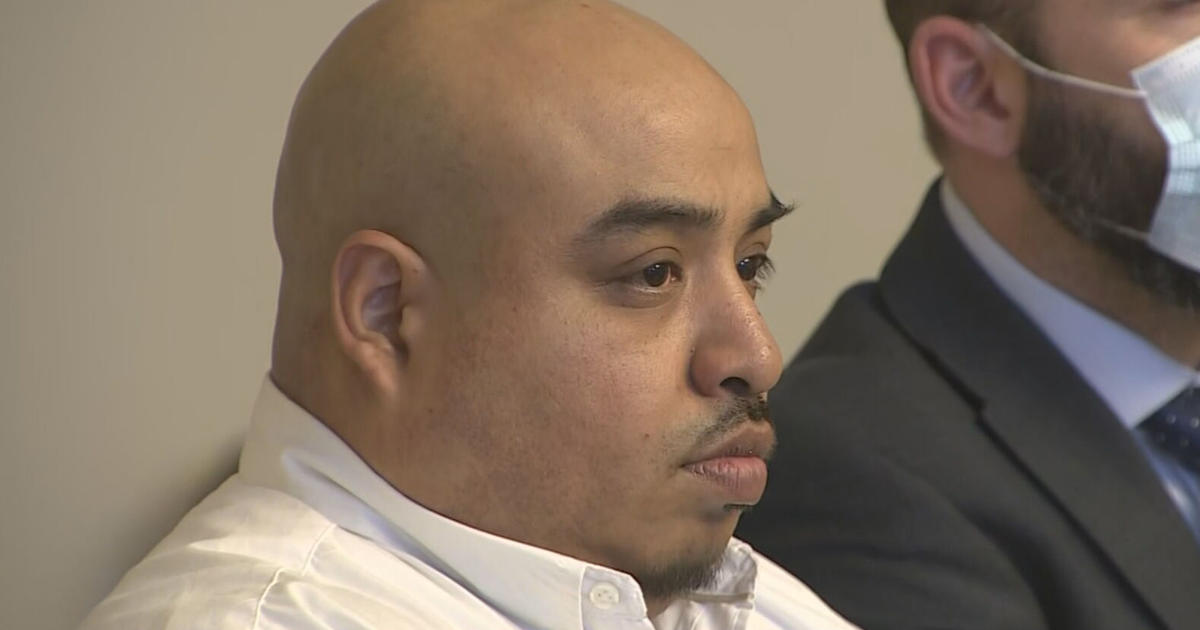New Harmony Montgomery Report Finds Parents' Rights Were Put Ahead Of Missing Girl's Safety
BOSTON (CBS) - A new report in the case of missing New Hampshire girl Harmony Montgomery found her safety was not considered as important as her parents' rights.
Seven-year-old Harmony was reported missing in New Hampshire at the end of 2021 but she has not been seen since 2019. No one has been charged in her disappearance.
Her father, 32-year-old Adam Montgomery, is currently being held at the Hillsborough County House of Corrections on several charges. He was arrested in January and charged with felony second-degree assault stemming from alleged conduct against Harmony in 2019.
She had been in the care of the Department of Children and Families (DCF) in Massachusetts starting back in 2014 before a Juvenile Court judge awarded custody to her father in New Hampshire in February 2019.
The report from the Massachusetts Office of the Child Advocate (OCA) released Wednesday looked into the decision-making in Harmony's case, including giving custody of her to her father, who has a criminal history. Investigators found he spent a total of 40 hours with his daughter from birth to age 4-and-a-half.
"The central and most important finding in this investigation and report is that Harmony's individual needs, wellbeing, and safety were not prioritized or considered on an equal footing with the assertion of her parents' rights to care for her in any aspect of the decision making by any state entity," OCA Director Maria Mossaides said in a statement.
"When children are not at the center of every aspect of the child protection system, then the system cannot truly protect them. This report describes the ripple effect of miscalculations of risk and an unequal weight placed on parents' rights versus a child's wellbeing."
At a news conference in Boston, Mossaides said the change of custody was a key decision in what happened to Harmony.
"This child had spent her entire life in foster care is one of the real serious issues here, because a child who enters care at 2 months old should be achieving permanency no later than 18 months. And here she was, 4-and-a-half years later, with no permanent home," she told reporters. "The issues here could not be addressed without talking about what happened in the courtroom."
Here are some of the key findings from the report, according to the OCA:
• DCF's clinical assessment and case management focused primarily on Harmony's mother, Crystal Sorey. Harmony's father, Adam Montgomery, was in prison when DCF's involvement with Harmony began. Although he was non-responsive for long periods of time, during the times when he appeared to be in communication with the DCF case management team, they were not able to engage him, except to facilitate his supervised visits with Harmony. No assessment was ever completed on Mr. Montgomery, and he was not held accountable for starting and completing the tasks on his action plan. The DCF case management team had no understanding of his family or personal history with which to develop an action plan and from which they could assess his capacity to parent Harmony.
• Harmony's individual medical and special needs were not central to the decision-making in her two reunifications with Ms. Sorey. The lack of focus on her needs, and the insufficient balancing of her well-being with Ms. Sorey and Mr. Montgomery's rights, resulted in significant placement instability for Harmony, as she was moved back and forth between Ms. Sorey's home and the home of her foster parents' multiple times. The result was reported significant trauma and harm to Harmony's well-being in the early years of her life.
• Harmony was also not prioritized in the legal case regarding her own care and protection, as neither the Judge in that case nor the attorneys put Harmony's needs, safety, or wellbeing at the center of the discussion of custody. The OCA estimates that Harmony spent a total of approximately 40 hours over the course of 20 supervised visits with her father from her birth to age four and a half, yet there was no discussion on how Harmony could safely transition to Mr. Montgomery's care, given the limited time he had spent with her. This lack of a focus on Harmony resulted in a miscalculation of the risks to Harmony when she was placed in Mr. Montgomery's custody, and there was no planning to ensure that the custody arrangement would be successful.
• The DCF attorney did not present a strong legal case for opposing placing Harmony in Mr. Montgomery's care. Due to the inability of DCF to fully assess Mr. Montgomery, DCF's legal case could not address Mr. Montgomery's parental capacity to care for Harmony in the context of Harmony's unique needs. The DCF attorney also did not effectively argue for the application of the Interstate Compact on the Placement of Children (ICPC) to this case, nor was the ICPC linked to any protective concerns.
• Harmony's best interests and welfare were not presented to the Juvenile Court Judge by her attorney. Harmony's attorney did not present any evidence of Harmony's needs, including her strengths and vulnerabilities. Harmony's attorney agreed with Harmony being placed in Mr. Montgomery's custody, and therefore did not present any evidence or question Mr. Montgomery on Harmony's specific medical needs, her educational needs, her behavioral needs, nor Harmony's daily routine or support system. The attorney also did not state any opposition to proceeding with custody without an ICPC, knowing that DCF was never able to conduct a proper assessment of the Montgomery family, and did not advocate for any type of transition plan to ensure a safe and successful transition from Harmony's foster parents' home to the home of Mr. Montgomery in New Hampshire. The OCA recognizes that Harmony's attorney was not required to do any of this under the current CPCS standards of representation, but believes that Harmony's interests and safety would have been better represented if they had. Accordingly, the OCA's recommendation, as described further below, recommends CPCS review the suitability of its current standards of representation.
• The court awarded cross-border custody without the compliance with the requirements of the ICPC, relying on New Hampshire caselaw over Massachusetts caselaw. The OCA believes that the procedures outlined in the ICPC, if applied in Harmony's case, would have helped to address safety and risk concerns for Harmony in Mr. Montgomery's care. This would have included confirming the family's living situation and Mrs. Montgomery's sobriety, continued oversight of the placement by New Hampshire DCYF, and ensuring that Harmony was connected to services and resources in New Hampshire, including school.
The OCA report recommended that DCF come up with a plan to make sure both parents are "adequately assessed" before giving either of them custody of a child.
The agency also suggested DCF and the Juvenile Court identify and address "persistent barriers" that prevent children from finding a permanent home.
"The Department remains committed to engaging with the court to increase timely permanence for children and to assure safety and for the child's best interest to remain paramount," a DCF spokesperson said in a statement after the report's release.
"Too often it is the case that sad facts result in bad law, and that will be the situation here if the OCA recommendations are adopted," Robert McGovern, a spokesman for the Committee for Public Counsel Services, said in a statement.
"This report calls for fundamental changes to the legal system in a way that fails to consider the constitutional rights of our clients, our responsibilities and obligations as attorneys and the existing law. These changes would pay a disservice to Miss Montgomery, and the thousands of children who are entitled to an attorney during the hardest moments of their childhood."
The report also recommended Massachusetts should find better ways to share information with other states.
A scathing report released by the state of New Hampshire in February identified mistakes made by authorities in both Massachusetts and New Hampshire before Harmony went missing.
"At the end of the day it's clear that the system failed Harmony. One of the biggest things I took out of the report was the idea that the court really did not put her needs first. That was very evident," New Hampshire Gov. Chris Sununu said. "When you're talking about a child welfare system and children protection, you protect the child. You make the child the priority. And unfortunately that did not happen in this case."
Sorey's attorney Rus Rilee, released a statement Wednesday evening. "Despite the admitted failures by Massachusetts DCF, the ultimate responsibility for Harmony's disappearance clearly falls on New Hampshire DCYF for failing to remove Harmony from her father's care and custody after reports that he physically abused her, for which he has been arrested. New Hampshire DCYF also failed multiple times to ascertain Harmony's location and well-being despite numerous concerns for her safety. The State of New Hampshire does not prioritize the safety of children in its care, and this report, along with that of New Hampshire Governor Sununu and Attorney General Formella, proves that."
If you have any information about Harmony's whereabouts, call the tip line at 603-203-6060.



